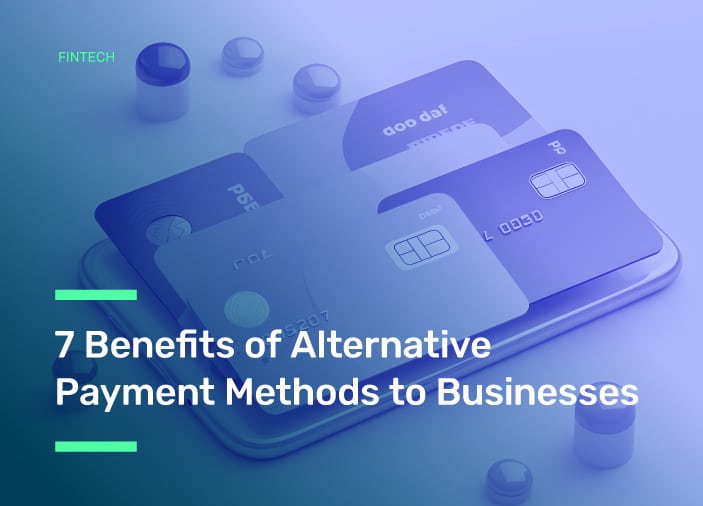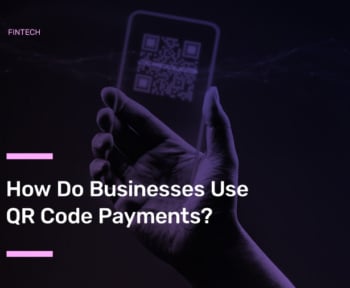
Table of Contents
- What Are Alternative Payment Methods?
- Benefits of Alternative Payment Methods
- Integrating and Adopting Alternative Payment Methods
- Conclusion
The conventional point of view has told us that cash is important throughout the decades. With the technological revolution, credit and debit cards have entered and dominated our lives. However, in this digital economy, businesses must explore a wider range of options than traditional payment methods. In an increasingly cashless marketplace, businesses that fail to embrace alternative payment methods could get left behind.
In this article, we will focus on the main benefits of alternative payment methods to grow your business on both national and global scales.

What Are Alternative Payment Methods?
Alternative payment methods (APMs) are digital payment methods apart from the conventional methods like cash or credit and debit cards. It can refer to everything from digital wallets to mobile payment options or new approaches like Buy Now Pay Later (BNPL) solutions.
Benefits of Alternative Payment Methods
The rise of alternative payment methods worldwide increasing dramatically. Accordingly, digital wallets -one of the most common methods among the alternative payment methods- usage is expected to increase by 83% by 2025. Moreover, in the European payments landscape, traditional cards’ market share is expected to decline to 33% by 2026. In contrast, digital wallets and BNPL solutions are projected to capture substantial market shares of 15% and 70%, respectively.
APMs allow businesses to boost their revenues and reach more customers. So, we can deep dive into the benefits of alternative payment methods in detail:
- Convenience and Seamless Use
Alternative payment methods offer unique convenience and ease of use. With digital wallets or mobile payment, users can make payment and transactions with just a few taps on their devices. Many customers prefer using alternative payment methods because they offer a faster and more user-friendly experience.
APMs eliminate the need for complex procedures, making financial transactions seamless, in comparison to traditional payment methods like credit cards.
- Better Customer Experience
Most of the business’s main objective is to build and grow their brand, and this starts with creating a positive perception for customers. APMs give customers a variety of user-friendly options that are quick, safe, and convenient. As a result, better encryption, secured authentication, and tokenization tools make alternative payment methods their first choice.
However, not all payment providers can deliver on this, so it’s important to work with a payment provider that supplies the coverage needed, as well as the capabilities to adapt and evolve as the business develops.
- Cost Savings and Efficiency
Today, businesses that accept online payments have many payment providers. The variety is growing every day with the rise of APMs.
Businesses looking to take advantage of the varying process fees of different payment service providers often work with multiple providers. At that point, orchestration solutions help them to eliminate the integration process that needs to be carried out with different payment providers. Furthermore, with the smart and dynamic payment routing feature of orchestration solutions, they can automatically route payment requests to the most advantageous provider, leading to cost savings.
These cost savings can be particularly beneficial for merchants, enabling them to conduct transactions more efficiently and allocate resources to other parts of their transactions.

- Enhanced Security
Alternative payment methods provide advanced technology to enhance security. Based on their technical abilities, they utilize encryption and authentication protocols to protect user transactions and personal information. Additionally, mobile devices can be protected with extra security measures, such as fingerprint authentication or facial recognition, adding an extra layer of protection.
- Faster Transactions
Traditional payment methods involve time-consuming processes like manual input of credit card details, causing slower transaction times. APMs, on the other hand, often offer faster and streamlined processes, leading to quicker checkouts. This also helps to reduce cart abandonment rates, thereby improving the overall customer experience.
So, according to a study, 13% of users abandon their cart without making a purchase when they don’t see their preferred payment method on a website. This is usually attributed to consumer habits, the advantages offered by their preferred payment method, or faster transactions.
As a result, merchants that work with different alternative payment methods compared to traditional payment methods can benefit from a better conversion rate and customer experience.
- Global Reach and Cross-Border Payments
Since APMs support cross-border transactions, they break down geographical barriers, enabling businesses to reach customers worldwide. They allow companies to expand their customer base and tap into international markets without the limitations imposed by traditional payment systems.
As businesses increasingly operate globally, the need for payment methods that can facilitate cross-border transactions becomes critical.
- The Rise of Digital Commerce
The e-commerce industry has been experiencing exponential growth (the number of users is expected to amount to 3.6 billion users by 2029 according to Statista), and alternative payment methods have become essential in supporting this expansion.
Because of their nature, APMs are well-suited for the e-commerce world, making them an ideal choice for the growing number of consumers who prefer to shop and pay easily. As online shopping becomes increasingly prevalent, businesses need to offer diverse payment options to reach to a wide range of customers.

Integrating and Adopting Alternative Payment Methods
In today’s business environment, it is difficult to predict what payment technologies will suddenly gain popularity. It is also challenging to forecast customers’ payment preferences.
In this circumstance, a merchant’s ability to adjust to changing payment types shows its adaptation and success. Therefore, businesses tend to adopt new payment methods to their platforms. However, integration processes for each payment provider would be a huge challenge for your business because conducting integration transactions would be time-consuming and require extra labor.
At this point, the payment orchestration platforms come on the scene. For example, the Craftgate payment orchestration platform enables merchants to work with a wide range of alternative payment methods, including digital wallets, shopping credit or BNPL solutions, and also meal/gift cards.
Suppose you want to use new payment methods in the future, expand your customer base, launch your international operations, or have a smooth payment step easily. In that case, you should choose a suitable orchestration platform that can move forward with you in your growth goals.

Conclusion
All in all, alternative payment methods allow businesses to explore new revenue streams while adapting to users’ needs.
Integration processes may be the biggest obstacle for businesses in diversifying the payment step by working with different alternative payment methods. To eliminate this problem, they will need to work with payment orchestration platforms. For example, the Craftgate payment orchestration platform allows merchants to access frequently preferred alternative payment methods from a single point.
If you are interested in exploring more, get in touch with our experts here and let us explain in detail why you should embrace this opportunity.






